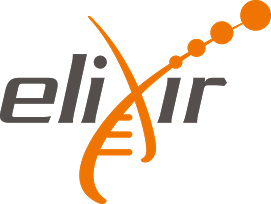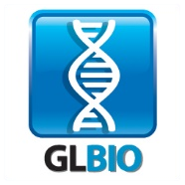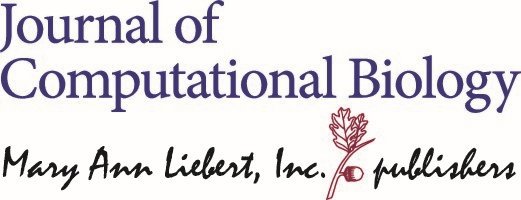Posters
Preparing your Poster - Information and Poster Size
Poster Schedule
Print your poster in Chicago
Poster Categories
View Posters By Category
Session A: (July 7 and July 8) | Session B: (July 9 and July 10) |
|---|---|
Short Abstract: Biological processes at almost every scale of biological organization are governed by complex, non-linear networks. Mathematical modeling and computer simulations have emerged as integral to life sciences research to understand these biological processes. Given the shift in life science research it is important for biology education to evolve in order to equip our students with skills to reason conceptually, mechanistically, and quantitatively, and to answer emerging life science questions. To address these challenges, we developed a new approach that enables students to learn through building, simulating, and investigating computational models of processes embedded in biological systems. This method is facilitated through an easy-to-use software, Cell Collective Learn (http://learn.cellcollective.org), that makes computational modeling accessible to any student and instructor (i.e., no prior computational modeling experience is necessary). We have developed and deployed lessons to cover a number of biological processes such as cell respiration, gene regulation, cell cycle, photosynthesis, glucose homeostasis, etc. This approach has been used at several levels, including large introductory courses, upper-level undergraduate, and graduate courses, as well as high school. The setting of its utility is also flexible; the modeling activities can be used in-class, assigned as homework, as well as deployed as extensive lab investigations.
Short Abstract: ScienceMapper is a web-based system for the management, exchange, and presentation of scientific knowledge. Users can use the ScienceMapper system online for designing slides that present scientific knowledge; slides can be combined to slide sets and shared among groups of registered users. Users are able to allow other users to modify their slides online. Furthermore, users can leave notes on slides. These notes can be kept private, shared with the slide’s author, or published with groups or all ScienceMapper users; publishing notes has to be allowed by the slide’s author. ScienceMapper is already in use at the Ludwig Boltzmann Institute for Experimental and Clinical Traumatology for exchanging knowledge about tissue regeneration and intensive care medicine for sharing and distributing scientific results among researchers and students. ScienceMapper has been developed and implemented by researchers at LBI Trauma and the Department for Medical and Bioinformatics at University of Applied Sciences Upper Austria, Hagenberg. The GUI of ScienceMapper has been developed as a dynamic webpage implemented in php and HTML, all contents are stored in a MySQL database, and the JS Graph framework has been integrated for the display and manipulation of graphical elements on slides. ScienceMapper can be accessed online at http://www.sciencemapper.com/.
Short Abstract: The Global Organisation for Bioinformatics Learning, Education & Training (https://www.mygoblet.org/) is a not-for-profit Foundation, established in 2012 to harmonise bioinformatics training activities worldwide. Its members (ranging from national and international societies, networks and research institutes, to individual researchers, instructors, students and so on) work together to cultivate the global bioinformatics trainer community, set standards, share best practices, and provide high-quality resources to support learning, education and training: the vision, to unite, inspire and equip bioinformatics trainers worldwide. The presentation will cover the work GOBLET has undertaken to provide access to training materials and guidelines for trainers.
Short Abstract: Resource limited settings in Africa have previously been viewed as a major obstacle in the provision and delivery of high quality training on the continent. The lack of relevant infrastructure and trained personnel presents a challenge in providing training in niche areas such as bioinformatics and genomics. H3ABioNet, a Pan African bioinformatics network, has assessed these limitations and subsequently developed a multiple-delivery-mode approach for providing online training in Africa. This approach has been implemented to deliver an Introduction to Bioinformatics (IBT) course, aimed at life science researchers and a Genomic Medicine course, aimed at providing training for health care professionals. Both courses make use of a combination of distance learning, open educational resources and face-to-face training. The IBT course was successfully run in 2016 and 2017 with a total of just under 1000 participants trained over the two years. The first iteration of the Genomic Medicine course was run in 2017 with a total of 19 classrooms in 11 countries, 1 online class, and 225 participants registered. Here we provide a brief overview of the multiple-delivery-mode approach used, together with the details of both courses and a reflection on some of the challenges encountered and lessons learned.
Short Abstract: Apart from online discussion forums, formal mechanisms for bioinformatics support are limited. The H3Africa Bioinformatics Network’s (H3ABioNet) User Support Working Group (USWG) implemented a public and freely available Helpdesk (HD), which provides generic bioinformatics support to researchers through an online ticketing platform. The following article reports on the H3ABioNet HD (H3A-HD)’s genesis and evolution, outlining its design, managerial, usage and evaluation framework. The evaluation of the H3A-HD involved comparative analysis to existing bioinformatics HDs, assessment of automatically generated usage logs and user feedback. Based on user feedback, the H3A-HD provides effective query resolution, with user self-reported satisfaction rates of over 70%. In order to continuously improve the H3A-HD services, the resource should be regularly monitored and evaluated, and future evaluations should include feedback from HD representatives and managerial team to comprehensively review the system. The H3A-HD design, implementation and evaluation framework could be easily adapted for use by interested stakeholders within the Bioinformatics community and beyond.
Short Abstract: BioExcel, an EU-funded Centre of Excellence for computational biomolecular research, has pioneered a training program based on a competency-based needs analysis. Competencies are sets of knowledge, skills and attitudes (KSAs); existing frameworks including ISCB’s were used to create the BioExcel profile. The competencies were mapped against existing training and new courses have been developed to fill specific gaps. The needs analysis highlighted that training resources related to High Performance Computing (HPC) are almost exclusively at intermediate and advanced level and require background knowledge of computing that many life scientists lack. Using the competencies and KSAs, BioExcel has designed and delivered two training courses to address this gap. (1) Foundation skills for HPC in computational biomolecular research is a primer for people wanting to use HPC but who find the concept quite daunting and lack the needed computational skills. The course uses project-based learning and examples from day-to-day work (e.g. obtaining data, installing software), to empower life scientists to get the most out of using computers. (2) Hands-on Introduction to HPC for life scientists, focusses on basic HPC concepts, helping users judge how HPC can benefit their research, and equip them to efficiently make use of HPC (with PRACE).
Short Abstract: It is a common trend of publishing research work in the form of archived proceedings and presenting the same in conferences. The research study published in the proceedings, the slides shown (and referred) during the presentation, and what the speaker actually speaks during the conference might differ due to various reasons. The technological advancements have empowered researchers to present their research in different forms (videos, autoslides, etc.). Presumably, due to the psychology of different authors, this has created variations in different contents. It is therefore appealing to study the relation between these different forms (say paper, slide and talk) of demonstrating the same research work. This paper adopts a text mining approach with rigorous statistical analysis to understand the behavior of a person who is presenting a research content. Our study (on a set of papers from ISMB 2012) highlights an interesting phenomenon that the slides are treated as a bridge between the other two. It also reveals a significant difference between these different forms of presentations. Moreover, some additional insights regarding the behavior of presenters and psychological aspects of learning are also obtained.
Short Abstract: Despite various governmental and charity funded initiatives across the globe, there is a significant education gap between rich and poor. Computational biology education is no exception. Even though internships boost a students career, they are scarce in academia, especially for those in developing countries. The Internships Program of the ISCB Student Council aims at helping students develop research and academic skills in computational biology and alleviating the divide across countries. The program has shown success in connecting students from developing nations with PIs in developed countries. The ISCB-SC minimizes the time commitment from the host during the recruitment of an intern by streamlining the entire pre-internship process, from advertising the position to collecting and screening the applications. Here, we describe the logistics of the program and discuss success stories from the past. We also will take a look forward and provide insight into how we can improve the program for those just joining our field. The mission of the Student Council is to promote the development of the next generation of computational biologists, and the internships program helps us ensure that this goal is not just attained in developed countries but available to all students around the globe.
Short Abstract: Since March 2013 the EMBL-EBI Training Team has used Google Docs to enhance the potential for collaborative learning during our face-to-face bioinformatics training courses. We provide participants with a URL at the start of a course that links to a shared “Living Document”. Everyone is encouraged to make use of the document to introduce their work and research and utilise it throughout the course. This allows our participants to collaboratively take notes with one another, recording answers to questions they ask, and detailing resources covered during the course. The document is available to the group after the course to refer back to and make use of in future. We provide a template of the “Living Document” to trainers several weeks before the course begins. The template includes sections for each trainer and course session; along with supplementary information on online training, reading lists, useful databases, tools, reference material and networking details. These are highlighted to participants during the course, allowing them to find extra details on the software we use, participant biographies and where they can locate training materials after the course. Our event organisers use it to disseminate information about meals, taxi transfers or visiting Cambridge.
Short Abstract: Graduate students in Computational Biology have strong quantitative backgrounds, but are often limited in their understanding of the theory, approach, and practice of biological experimentation. A strong grasp of the provenance of relevant biological data is essential for computational biologists to effectively critique and incorporate data into their research efforts. To give students this knowledge and insight, we have developed the Laboratory Methods for Computational Biologists (LMCB) course to provide a hands-on laboratory experience in four major areas: genomics, microscopy and bioimaging, high content screening, and x-ray crystallography. For each area, we have designed course modules covering general topics such as experimental design, limitations of common methods, cutting-edge and high throughput techniques, potential sources of error in data, and the preservation, analysis, and presentation of data. To provide the students with a more immersive research experience, we have designed the modules to cover one common research topic giving the students experience in using results from previous modules to inform the design of experiments for the next. The LMCB course provides foundational and experiential wet-lab training for the benefit of nascent computational scientists.
Short Abstract: Bioinformatics.ca presents the Canadian Bioinformatics Workshops Series annually offering up to thirteen one- to seven-day workshops covering a wide range of advanced topics in bioinformatics. We are a strong supporter of open science and strive to make all of our educational resources open and accessible. To extend our audience reach and improve upon open accessibility to our content, we explored usage of technologies not traditionally used in learning management. As a result, we migrated to GitHub to more openly share our workshop lectures and tutorials, and to YouTube to more broadly share our workshop recordings. With the recent emphasis on Findable, Accessible, Interoperable, Reusable (FAIR) Principles, we are further extending our support of open science by adopting emerging guidelines set out by Bioschemas.org. Here, we demonstrate the highly successful impact such changes have made on user uptake, audience growth and accessibility of our online workshop content, and explore additional strategies to improve further.
Short Abstract: A pervasive problem faced by bench and field scientists is that advances in high-throughput measurement platforms are outpacing their communities’ ability to readily analyze the datasets produced. In the fullness of time, those communities certainly will have evolved and will have acquired the necessary computational expertise: the undergraduate and graduate curricula will prepare students, and faculty mentors and more advanced students will be able to help newer lab members learn how to tackle challenging data analyses. But, meanwhile, what can be done to help those struggling with computational challenges? In our presentation, we will discuss a project-based initiative (slated to begin Fall 2018) to address these issues, aimed at plant scientists on our campus. The key objective of the initiative is to deliberately foster the growth of “Communities of Practice” across the several plant science departments. The core activity will be to provide support for small “software development teams” of graduate students working together on common computational problems. The members of these teams will seed the growth of the emergent communities of practice.
Short Abstract: Many biomedical scientists engaged in computational research lack expertise in software engineering, the discipline that has formulated the skills and best practices that enable software developers to efficiently produce quality software. Since software engineering's benefits are well established, training these scientists in its methods would likely improve the quality of the bioinformatic software they create. We're addressing this problem by teaching software engineering to bioinformatic researchers in a graduate course called Biomedical Software Engineering. We cover a comprehensive set of practical, well-regarded methods that students can apply immediately: requirements analysis; software architecture; modular and object-oriented design; software abstraction, modularity, and encapsulation; software reuse; version control; unit and regression testing; and error handling, logging and debugging. We use open source tools that can be freely obtained, and illustrate all methods with software that solves biomedical problems. In addition to programming assignments, all students must work on a biomedical research software project which they use to reinforce the skills taught in class. The course's initial offering was well received by students who are training for careers in bioinformatics in our MS program in Biomedical Informatics. Further, we plan to extend the course to PhD and MD/PhD students, and practicing researchers.
Short Abstract: The Global Organisation for Bioinformatics Learning, Education & Training (GOBLET) is a not-for-profit Foundation, established in 2012 to harmonise bioinformatics training activities worldwide. Its members (e.g. national and international societies, individual researchers, instructors, students etc) work together to cultivate the global bioinformatics trainer community, set standards, share best practices, and provide high-quality resources to support learning, education and training: the vision, to unite, inspire and equip bioinformatics trainers worldwide. As a consortium dedicated to fostering the global bioinformatics trainer community, GOBLET has begun working with F1000 as advisors on their Bioinformatics Education and Training Collection. The Collection will provide a platform for publishing open material dedicated to bioinformatics and data science training and education in the life sciences. Such materials may include peer-reviewed original papers, presentation slides, conference posters, and reports, plus non peer-reviewed documents that have editorial approval. The Collection launches with selected articles and posters collated from prior submissions to F1000 Research. To augment this collection, GOBLET encourages the international community to share more of their research articles, hackathon reports, opinion articles, best practice guidelines, and other such training-related documents and materials, ultimately to build a valuable global reference resource for bioinformatics and data science educators and trainers.
Short Abstract: Bioinformatics skills are in high demand in life science research, but even at the level of basic data stewardship, these skills are taught only in about 25% of educational programs. Limiting factors for the integration of bioinformatics practice-oriented courses into curriculum include the lack of qualified trainers experienced in the subject, cost of computational resources and infrastructure maintenance, and standard pre-requirement of coding competencies. T-BioInfo is a research platform that can also be used for education in combination with online educational modules allow overcoming these limitations providing theoretical background and hands-on experience in a project-oriented educational environment. The T-BioInfo platform is a combination of interconnected algorithms that can be assembled into pipelines for analysis of multiple types of ‘omics’ data and their integration. The platform enables application of advanced bioinformatics methods without the need of coding skills. In parallel, online educational modules provide a theoretical framework and practical guides needed for different types of analysis. The course participants are invited to analyze publically available datasets presented as exemplar projects throughout the course. This model for bioinformatics training was implemented online and received a high ranking from surveyed users (N=102), also the courses were piloted at Loyola University New Orleans.
Short Abstract: The integration of bioinformatics into the undergraduate curriculum presents several challenges. We present a new model for course development that utilizes our unique online learning environment coupled with traditional pedagogical approaches. The T-BioInfo platform (https://t-bio.info) allows users to combine computational analysis modules into pipelines to process many types of ‘omics data and use machine learning for it’s analysis. This model was implemented at a liberal arts institution in New Orleans for the first time in January 2018. Twelve undergraduate students participated in a new bioinformatics course. After completing a core set of online modules and pipelines, students conducted team research projects on topics related to precision medicine and results were presented in a final poster session. At midterm, 67% of participants expressed an increased interest in conducting bioinformatics research and 42% were very interested in pursuing additional bioinformatics training. Assessments of key concepts and bioinformatics theory reflected gains of approximately 20% upon completion of this course. In contrast, a cohort participating in an exclusively online version of this course (n=70) did not demonstrate significant gains and on average, scored lower. In conclusion, our collaborative model for bioinformatics education combines best-practices in online and in-class learning with a powerful computational platform.












